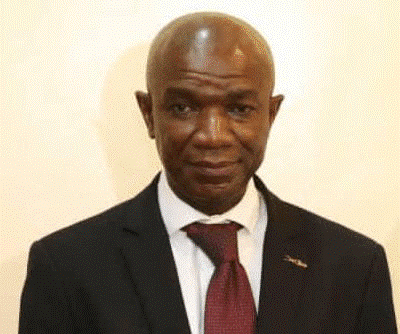By Kebba AF Touray
Justice Sheriff B. Tabally, former Sheriff of the High Court and now a judge of the high court, has conceded that a report his office submitted to the Janneh Commission detailing the sale of former President Yahya Jammeh’s confiscated livestock was inaccurate. His acknowledgment came during a detailed and sometimes tense testimony before the National Assembly’s Select Committee probing the disposal of Jammeh’s assets.
Appearing for a second time before the committee on Friday, July 1, 2025, Justice Tabally was led in testimony by Counsel Aji Saine Kah, who scrutinized the report of sale, the bank statements detailing proceeds of the sales, and the involvement of the State Intelligence Service (SIS) in the cattle disposal exercise. What unfolded was a narrative of administrative missteps, blurred lines of responsibility, and a process described by lawmakers as opaque and irregular.
Counsel Kah asked Justice Tabally to explain why a report that was supposed to be generated and retained by the Sheriff’s Office was instead submitted to the Ministry of Justice.
“Why was this report sent to the Ministry of Justice?” she asked.
Justice Tabally responded: “The then Solicitor General requested me to send him the report sale for him to forward it to the commission.”
Asked when this request was made, Tabally said it came a few days before the completion of the sale.
When pressed whether it was standard for a party in a legal matter to wait months after a sale to request a report from the Sheriff, Tabally admitted: “No. This is unusual because I can’t remember how many times I have to do a report. Not in all sales that I have to do a report. I rely on the return of the bailiffs and place it in the file. I personally—I can’t remember I have even authored a report except in this case.”
Counsel Kah reminded him that the responsibility of preparing a return falls on the bailiffs, not the Sheriff. “Who should prepare a return?” she asked.
Tabally replied, “The bailiffs on the ground should prepare the returns, but not by the Sheriff.” He then added that in this case, the bailiffs were not involved.
Kah stated, “There was no return basically, and you only issued handwritten notes which you did not even keep a copy of in the first three days of the sale.”
“So, we can see here that eventually, the report you prepared and submitted to the Solicitor General, which was then forwarded to the Commission of Inquiry is actually not accurate?” Counsel Kah pressed.
“Ok. I accept,” Justice Tabally conceded.
Kah then read from the statement submitted by Tabally to the committee, which claimed that 625 cattle were sold in Kanilai, 67 in Farato, and 32 in Banjulinding—totaling 724 cattle. She noted that Tabally was not present during the Farato, Banjulinding, and even the first day of the Kanilai sale, and had no report to verify these figures.
Tabally admitted again, “Yes.”
“So it’s not accurate?” Kah asked.
“Ok. I accept,” Tabally replied.
Kah also asked him who guided decisions on how the cows were grouped and sold.
“Mr. Amadou Kora, along with Mr. Alieu Jallow,” Tabally answered.
Justice Tabally was also questioned about the role played by officials of the State Intelligence Service (formerly NIA) during the cattle sale, despite no mention of SIS involvement in the court order authorizing the sales.
Counsel Kah asked: “Why was the SIS involved in the sale process when the court did not state that the SIS should be part of the sale?”
“The Sheriff did not invite the SIS officers,” Tabally replied. “At the time, I did not verify, but I thought maybe they were part of the task force at the instance of the state to witness and confirm what has been taking place on the ground.”
When asked which task force he referred to, Tabally answered, “The task force that was set up at the Ministry of Justice.”
Kah referred him to paragraph 13 of his statement, in which he stated that SIS officers were assisting in controlling crowds and helping bailiffs carry cash deposits.
Tabally clarified: “Not necessarily to physically carry the cash, but they were trying here just to help the bailiff control because the place was crowded and to help the bailiffs in receiving these payments without hindrance.” He added, “That’s what I wanted to say.”
Kah pressed again: “Did the Office of the Sheriff request the presence of an intelligence officer from the SIS at the point of sale?”
“No, never,” Tabally replied. “But like I said, the sale was an unusual sale that the Sheriff has never conducted of this magnitude.”
“So an unusual sale happened, so therefore unusual actions were taken?” Counsel asked.
“Yeah,” Tabally replied.
Another critical focus of the testimony was the handling of the proceeds from the cattle sales. Counsel Kah presented a bank statement from Trust Bank Limited, which was supposed to host an interest-generating account specifically mandated by the court for the deposit of sale proceeds. But the account was opened after the sales had already commenced.
She noted that the first deposit, a cash deposit of D1,024,000.00, was made by Deputy Sheriff Seedy Fatty on 12th January 2018.
“Who is Mr. Seedy Fatty?” Kah asked.
“He was the Deputy Sheriff and is still the Deputy Sheriff responsible for administration,” Tabally answered.
Kah continued, noting that a D3.1 million cash deposit was made by Modou Musa on 13th January 2018. Another deposit of D2,565,000.00 was made by Seedy Fatty on 18th January, and the final day of the sale, 31st January, saw Modou Musa deposit D297,000.00.
Additional deposits were made later: a D33,000.00 cheque and another for D45,000.00 from Ecobank on 2nd February 2018. A final cash deposit of D198,000.00 by Modou Musa was recorded on 5th February—more than a month after the sales were concluded.
“Were you aware or were you ever informed about these transactions?” Kah asked.
“Yes. I have seen it on the 5th March 2018,” Tabally replied.
“Do you know why this sum was deposited at that point?” she asked.
Tabally said he could not remember clearly but explained: “I know in one or two instances there were cheques that were issued to us as payments, so we had to locate the buyers to return the cheques to them and then for them to effect payment subsequently.”
He said he was unsure if this instance involved one or two buyers, adding, “I think, or buyers.”
Earlier in the hearings, Hon. Alagie Mbowe questioned Justice Tabally over inconsistent pricing in the cattle sales. Some calves sold for as low as D909, while others were sold for D2,000, D2,666, D3,500, and even D16,000.
“So there is so much inconsistency on the cost of calf—from 909 dalasi to D2,000, D2,600 to D16,000 to D3,500. What was the rationale of selling these cows because they are all cows for different prices—what was the rationale?” Mbowe asked.
“They may be referred to generally as calves but maybe depending on the size too. I don’t know. Like I said before, we were relying on advice from one guy on the ground and Mr. Jallow,” Tabally replied.
“Which guy was that?” Mbowe asked.
“Mr. [Amadou] Kora. I didn’t know value of cows. I have no expertise,” Tabally admitted.
Mbowe also raised the issue of receipts, noting that official IFMIS receipts were not issued. Instead, handwritten notes were provided, which Tabally said were meant to facilitate transportation.
Mbowe said this contradicted the Financial Regulations and asked why the standard government receipt book, known as GTR, was not used.
“We did not use our own receipt. We only issued notes to facilitate transportation then after we lodged to the bank but if anybody had come forward, we would have been able to issue them a receipt,” Tabally said.
When asked what was given to buyers to confirm ownership, he replied: “It is a handwritten note endorsed and stamped by the Sheriff stamp to facilitate transportation from the site.”
Tabally admitted he was unaware of the livestock sales attestation form used widely across The Gambia, which includes detailed buyer and seller information.
Another major concern raised was the absence of public advertisement for the sale of the livestock, as required by law.
When asked how people became aware of the sale, Tabally said: “It is possible some of my staff may have communicated to some of these dealers, but I was not privy to that, and I certainly have not communicated with anybody.”



















